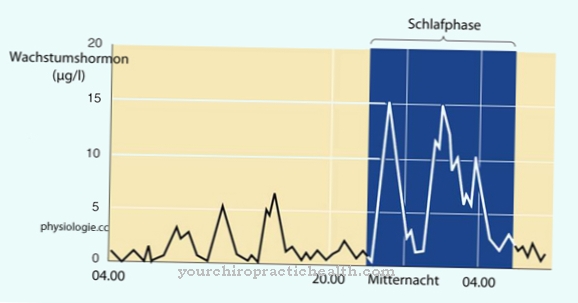When adults find it difficult to read and have great difficulty spelling despite their obvious talent, it is frustrating in everyday life. Contrary to popular belief that dyslexia “grows out” in adulthood, the difficulties remain. The reasons why adults do not speak openly about it and what can be done about it are presented in this post.
Therefore, those affected do not talk about their dyslexia

© o_lypa - stock.adobe.com
There are a number of reasons why people remain silent. One reason is that they don't even know they are dyslexic. Although you struggled at school, you never had to take a dyslexia test that actually determined the cause.
Dyslexics often feel that they are to blame for their failure because they may not have studied intensively enough. Others consider themselves simply not gifted. The negative self-image drains your self-confidence. That they have mastered school despite the difficulties demands respect.
Left alone: when no help is organized
In other cases, when guardians or educators were well aware of the dyslexia but supportive measures were not provided, the affected child was left to fend for themselves. Constant failures in school can be wearing down and now in adulthood you don't want to deal with this problematic topic again. The idea behind it is: “Now comes the training (or study) and in this context I can concentrate on my strengths. I can get by without any support measures. "
Practice shows that affected young people who switch to training or further education or even to university do not ask for support. It never occurs to them that they are entitled to a so-called disadvantage compensation. But it does, as explained in a guidebook from the Federal Association of Dyslexia and Dyscalculia.
In a nutshell: Shame, a lack of self-confidence and the worry of being labeled as stupid or lazy often play a major role. If employers think that dyslexia is affecting performance or could even result in not being able to qualify for a job, this creates great pressure on those affected. But there are ways that adult dyslexics can improve their everyday work.
LRS grants in adulthood

© carlacastagno - stock.adobe.com
Targeted therapy can improve reading skills and spelling. The dyslexia therapy can be carried out online on your own. The training materials start at a more child-like level, but adults shouldn't be confused by this. After all, certain reading and spelling skills from elementary school knowledge are not secured in adults. The basics need to be clarified.
It is advisable to step beyond your own shadow and remember that you must first create a solid base for yourself. This basis consists of the basic areas that must be safely mastered. Only then will the therapy be successful.
Depending on your personal level of knowledge, it may take some time until all areas of error have been caught up and secured to a satisfactory degree. A 100 percent success rate is not to be expected, but very few adults are 100 percent sure about spelling. There are simply a lot of exception rules in the spelling, so it is difficult to remember everything.
Technical aids for dyslexics

Advancement in adulthood requires patience. It takes time for reading and spelling skills to become so solid that people feel confident. If, for example, there is an examination situation in the context of training, studies or further training, when a lot of material has to be learned and worked on, dyslexics need special strategies.
You have to struggle with two things: with the content requirements of the material and with dyslexia. The fear of making mistakes blocks performance and causes the error rate to go up. Targeted help is therefore recommended and it can look like this:
- If someone (or something like reading software) reads the test-relevant texts, the dyslexic can concentrate better on finding a solution because he can absorb the information immediately and does not have to work out the text first.
- Special language software helps to formulate term papers or theses. Fellow students or friends will then proofread.
- Information on the board can be photographed so that all information about domestic rework is available in full. So it doesn't matter if you can't write everything down.
If the weaknesses of dyslexia are compensated by these aids, those affected can save a lot of time, improve learning success and increase the proportion of independent work. Self-confidence grows and the ability to deal positively with restrictions also increases. When the weaknesses are proactively countered in this way, a large part of the fear of failure disappears.
Training companies, schools and universities must develop understanding
It is important that training companies, universities, schools and employers understand that aids in recording, reproducing and processing information are as necessary for dyslexics as glasses are for people with impaired vision. Nobody would forbid those who wear glasses to wear glasses because they need them in order to see as well as others. It is similar with dyslexics. They need appropriate help in order to have the same learning requirements as people without dyslexia.






.jpg)





















